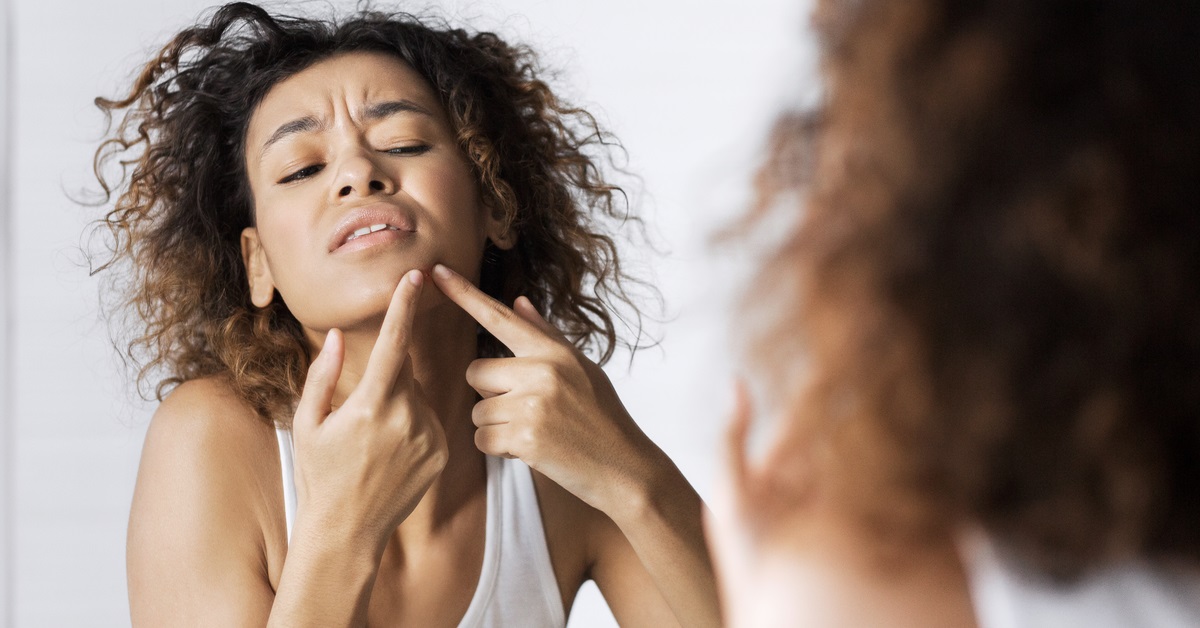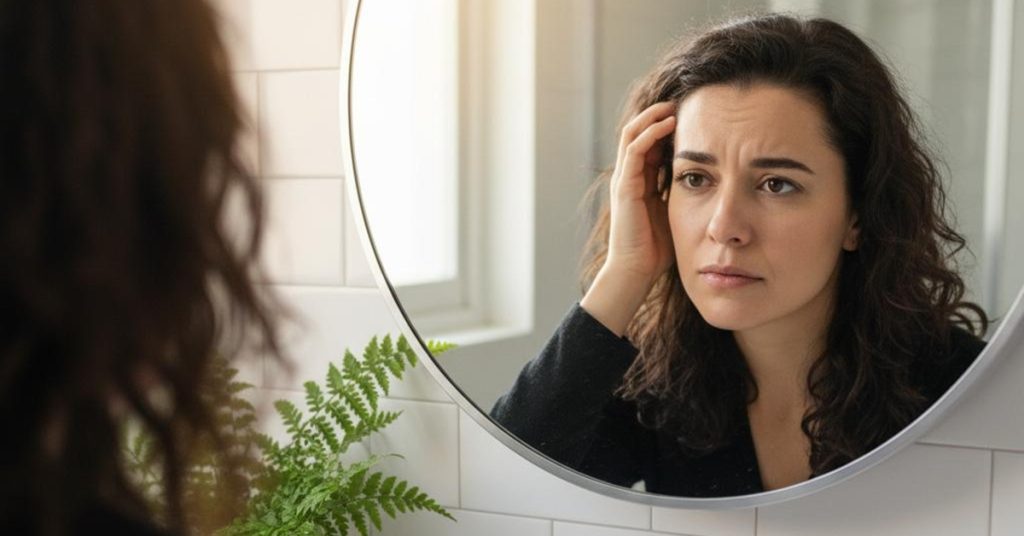A Marietta Dermatologist’s Guide to Acne

Acne is a common skin condition that affects millions of people worldwide. It can be both physically and emotionally distressing, often causing self-consciousness and a decrease in self-esteem. Understanding the causes, types, and treatment options for acne is crucial in effectively managing and overcoming this condition.
In “A Marietta Dermatologist’s Guide to Acne,” we will explore the various aspects of acne and provide you with the essential information you need. From debunking common misconceptions about acne to discussing the different types of acne and their characteristics, we will cover it all. Additionally, we will outline an effective skincare routine for acne-prone skin, including cleansing, exfoliation, moisturizing, and sun protection. Moreover, we will delve into the available treatment options, both topical and oral, and explore the impact of lifestyle and diet on acne. Lastly, we will provide tips for preventing acne breakouts and managing acne scars.
By the end of this guide, you will have a comprehensive understanding of acne and be equipped with the knowledge to effectively manage and minimize its impact. Remember, seeking professional acne advice from one of our Marietta dermatologists is always recommended for personalized treatment and guidance.
Overview of Acne
Acne is a common skin condition characterized by the presence of pimples, blackheads, and whiteheads on the face, chest, back, and sometimes even the neck and shoulders. It occurs when hair follicles become clogged with oil and dead skin cells, leading to inflammation and the formation of lesions. Acne can affect Marietta patients of all ages and is often associated with hormonal changes, such as puberty or hormonal imbalances. It can also be triggered by factors such as stress, certain medications, and environmental factors. While acne is not a life-threatening condition, it can be emotionally distressing and leave permanent scars if not properly treated. Understanding the causes, types, and treatment options for acne is crucial in effectively managing and overcoming this condition.
Causes and Common Misconceptions About Acne
Acne is primarily caused by the overproduction of sebum, an oily substance, and the accumulation of dead skin cells that clog the hair follicles. Hormonal changes, such as puberty or hormonal imbalances, can trigger the increased production of sebum. Other factors, such as stress, certain medications, and environmental factors such as pollution and humidity, can also contribute to the development of acne.
There are several common misconceptions about acne that need to be debunked. One misconception is that acne is caused by poor hygiene. While keeping your skin clean is important, acne is not solely caused by dirt and oil on the skin. Another misconception is that eating greasy foods or chocolate causes acne. While diet may play a role in some cases, the link between specific foods and acne is not well-established. Lastly, popping or picking at pimples can worsen inflammation and increase the risk of scarring. It is important to resist the urge to squeeze or pick at acne lesions and instead seek appropriate treatment from one of our Marietta dermatologists.
Types of Acne
Acne can manifest in various forms, each with its own characteristics. The most common types of acne include:
- Whiteheads: Small, flesh-colored bumps that occur when the hair follicles are clogged with dead skin cells and sebum.
- Blackheads: Similar to whiteheads, but with a dark appearance due to oxidation of the trapped sebum and debris.
- Papules: Small, red, raised bumps that are tender to touch and do not contain pus.
- Pustules: Similar to papules, but with a white or yellow center filled with pus.
- Nodules: Large, painful, inflamed bumps that develop deep within the skin’s layers and can lead to scarring.
- Cysts: Severe, painful lesions that are filled with pus and can cause deep tissue damage and scarring.
Understanding the different types of acne is crucial for developing an appropriate treatment plan and achieving clear skin.
Acne Vulgaris and Hormonal Acne
Acne vulgaris is the most common type of acne, affecting Marietta residents of all ages. It occurs when the hair follicles become clogged with oil, dead skin cells, and bacteria. Acne vulgaris is characterized by the presence of whiteheads, blackheads, papules, pustules, nodules, and cysts.
Hormonal acne, on the other hand, is influenced by hormonal fluctuations in the body. It often occurs during puberty, pregnancy, or menopause. Hormonal acne is typically characterized by deep, painful cysts that occur primarily on the lower face, jawline, and neck.
Both acne vulgaris and hormonal acne can be challenging to manage. However, they can be effectively treated through a combination of skincare, prescription medications, and lifestyle changes. It is recommended to consult with a dermatologist to determine the most suitable treatment approach for each individual case of acne.
Skincare Routine for Acne
When it comes to managing acne, having a proper skincare routine is essential. Here are some tips to help develop an effective routine for acne-prone skin:
- Cleansing: Use a gentle cleanser twice a day to remove excess oil, dirt, and bacteria from the skin. Look for products containing salicylic acid or benzoyl peroxide, which can help unclog pores.
- Exfoliation: Regular exfoliation can help slough off dead skin cells and prevent clogged pores. Opt for chemical exfoliants such as alpha-hydroxy acids (AHAs) or beta-hydroxy acids instead of harsh physical scrubs.
- Moisturizing: It’s important to moisturize even if you have oily skin. Choose oil-free, non-comedogenic moisturizers to hydrate the skin without clogging pores.
- Sun Protection: Always use a broad-spectrum sunscreen with at least SPF 30 to protect the skin from harmful UV rays. Look for lightweight, non-greasy formulas that won’t aggravate acne.
By following a consistent skincare routine, you can improve the overall health of your skin and reduce the occurrence of acne breakouts. Be patient and give your skin time to adjust to the new routine. If you have severe or persistent acne, consult with one of our Marietta dermatologists for personalized advice and acne treatment options.
Cleansing and Exfoliation for Acne-Prone Skin
When it comes to managing acne, proper cleansing and exfoliation are crucial steps in your skincare routine. For acne-prone skin, it’s important to use a gentle cleanser twice a day to remove excess oil, dirt, and bacteria without causing irritation. Look for cleansers that contain salicylic acid or benzoyl peroxide, as these ingredients can help unclog pores and reduce inflammation.
Exfoliation is also beneficial for acne-prone skin, as it helps to remove dead skin cells and prevent clogged pores. However, it’s important to choose chemical exfoliants such as alpha-hydroxy acids or beta-hydroxy acids instead of harsh physical scrubs, which can irritate and damage the skin. Incorporating these cleansing and exfoliating steps into your skincare routine can help keep your skin clean and minimize acne breakouts.
Choosing the Right Moisturizer and Sunscreen for Acne
When it comes to moisturizers and sunscreens for acne-prone skin, it’s important to choose products that are non-comedogenic and oil-free. Look for moisturizers that are specifically formulated for acne-prone skin and contain ingredients such as hyaluronic acid or ceramides, which help to hydrate the skin without clogging the pores. Avoid heavy, greasy moisturizers that can exacerbate acne.
When selecting a sunscreen, opt for oil-free and non-comedogenic formulas that provide broad-spectrum protection. Look for sunscreens with a lightweight texture that won’t feel heavy on the skin or cause breakouts. Additionally, consider sunscreens that contain ingredients such as zinc oxide or titanium dioxide, as these can provide gentle and non-irritating protection for acne-prone skin.
Remember to apply moisturizer and sunscreen daily to protect your skin and keep it hydrated, even if you have acne.
Treatment Options for Acne
Topical treatments are often the first line of defense for mild to moderate acne in our Marietta patients. These include ingredients such as benzoyl peroxide, salicylic acid, and retinoids, which help to unclog pores, reduce inflammation, and prevent new breakouts. It’s important to use these products consistently for several weeks to see results.
For more severe or persistent acne, oral medications may be prescribed. Antibiotics help to reduce bacteria and inflammation, while hormonal therapies, such as birth control pills or spironolactone, can address hormonal imbalances that contribute to acne.
In some cases, we may recommend our Marietta patients undergo procedures such as chemical peels, microdermabrasion, or laser therapy to treat stubborn acne or minimize scarring.
Topical Treatments for Mild to Moderate Acne
Topical treatments are often the first line of defense for anyone in Marietta with mild to moderate acne. These treatments are applied directly to the skin and can target the underlying causes of acne, such as excess oil production and clogged pores.
Common ingredients found in topical treatments include benzoyl peroxide, which helps to kill bacteria and reduce inflammation, and salicylic acid, which helps to unclog pores and exfoliate the skin.
Retinoids, such as adapalene and tretinoin, are also commonly used to treat acne. They work by speeding up cell turnover and preventing the formation of comedones.
When using topical treatments, it’s important to start with a lower concentration and gradually increase as tolerated to minimize potential skin irritation. It’s also crucial to follow a consistent skincare routine, applying the treatment once or twice daily, and to be patient, as it can take several weeks for our Marietta patients to see noticeable improvements in acne.
Oral Medications and Hormonal Therapy for Severe Acne
Oral medications and hormonal therapy are often recommended for individuals with severe acne who may not respond well to topical treatments alone. These treatment options target the hormonal imbalances that can contribute to the development of acne.
One common oral medication for severe acne is isotretinoin, which is a powerful retinoid that can effectively treat even the most stubborn cases of acne. It works by reducing oil production, preventing the formation of comedones, and reducing inflammation.
In some cases, hormonal therapy may be prescribed, especially for Marietta women with acne that is influenced by hormonal fluctuations. Birth control pills and anti-androgen medications can help regulate hormone levels and reduce the severity of acne.
It’s important to note that oral medications and hormonal therapy for acne should be used under the guidance of one of our Marietta dermatologists, as they can have potential side effects and require careful monitoring. Regular check-ups and adherence to the prescribed treatment regimen are crucial for optimal results.
Lifestyle and Diet Changes
Making certain lifestyle and diet changes can have a significant impact on managing acne for our Marietta patients, and maintaining a regular skincare routine is essential. This includes cleansing the face twice daily, using non-comedogenic products, and avoiding excessive scrubbing or picking at the skin. Additionally, managing stress levels through practices such as exercise, meditation, and adequate sleep can help reduce the severity of acne breakouts.
In terms of diet, we recommend that our Marietta patients avoid foods that are high in sugar and processed carbohydrates, as they can increase inflammation and oil production in the skin. Instead, opt for a balanced diet rich in fruits, vegetables, whole grains, and lean proteins. Drinking plenty of water and avoiding excessive alcohol consumption is also beneficial for maintaining healthy skin.
By adopting these lifestyle and diet changes, Marietta residents with acne-prone skin can promote clearer and healthier skin over time.
The Impact of Lifestyle Factors on Acne
Acne is not solely caused by external factors such as bacteria or hormones. Lifestyle choices can also play a significant role in the development and severity of acne. Poor lifestyle habits, such as a lack of sleep, excessive stress, and unhealthy diets, can contribute to increased inflammation and oil production in the skin, leading to more frequent and severe breakouts.
Additionally, habits such as smoking and excessive alcohol consumption can impair the skin’s ability to heal and regenerate, exacerbating acne symptoms. Adopting a healthy lifestyle can help manage acne for our Marietta patients by reducing inflammation and promoting skin health. This includes getting enough sleep, managing stress levels, avoiding smoking and excessive alcohol intake, and maintaining a balanced diet. By making these lifestyle changes, you can improve the overall health and appearance of their skin.
Dietary Recommendations for Acne-Prone Skin
For Marietta residents with acne-prone skin, making certain dietary adjustments can help improve their condition. While there is no one-size-fits-all diet for acne, there are some general recommendations that can be beneficial.
Eating a balanced diet rich in fruits, vegetables, whole grains, and lean proteins can contribute to overall skin health. Foods high in antioxidants, such as berries, spinach, and nuts, can help reduce inflammation in the body and potentially improve acne symptoms. Additionally, reducing the consumption of processed foods, sugary snacks, and greasy foods may also be beneficial.
Some studies suggest that consuming foods with a high glycemic index, such as white bread and sugary drinks, may contribute to acne, but more research is needed to establish a definitive link. Keeping a food diary to identify potential trigger foods and working with a healthcare professional or registered dietitian can help individuals develop a personalized diet plan that supports their acne management goals.
Prevention and Tips for Managing Acne
To prevent acne breakouts and effectively manage existing acne, there are several important tips to keep in mind. First, maintaining a consistent skincare routine is crucial. This includes cleansing the skin twice a day with a gentle cleanser and using non-comedogenic products. Exfoliating once or twice a week can help remove dead skin cells and unclog pores. Avoiding picking or popping pimples is also essential to prevent scarring and further inflammation. Additionally, keeping the skin hydrated with a suitable moisturizer and wearing sunscreen daily can protect against sun damage and prevent acne scars from darkening. Stress management techniques, such as exercise and relaxation exercises, can also be beneficial in reducing acne flare-ups. Finally, seeking professional help from a dermatologist is recommended for severe acne or persistent breakouts.
Tips for Preventing Acne Breakouts
To prevent acne breakouts, it is important for our Marietta patients to maintain a consistent skincare routine. Here are some tips to help keep your skin clear and healthy:
- Cleanse Twice a Day: Use a gentle cleanser to remove oil, dirt, and impurities from your skin. Avoid harsh scrubbing, as it can irritate the skin.
- Avoid Touching Your Face: Touching your face can transfer bacteria and oil to your skin, leading to breakouts. Keep your hands clean and avoid resting your chin or cheeks on your hands.
- Use Non-Comedogenic Products: Choose skincare and makeup products that are labeled non-comedogenic, which means they won’t clog your pores.
- Don’t Squeeze or Pick at Pimples: Picking or popping pimples can worsen inflammation, increase the risk of infection, and lead to scarring.
- Manage Stress Levels: Stress can trigger acne flare-ups. Practice stress management techniques, such as exercise, meditation, or deep breathing exercises.
- Keep Your Hair Clean: If you have long hair, tie it back or away from your face to prevent oils and products from clogging your pores.
By following these tips, you can help prevent acne breakouts and maintain clear and healthy skin.
How to Effectively Manage and Minimize Acne Scars
Acne scars can be a frustrating reminder of past breakouts. However, there are several effective measures you can take to manage and minimize these scars. First, it is important to visit one of our Marietta dermatologists who can recommend the most suitable treatment options for your specific scarring. These may include procedures such as chemical peels, microdermabrasion, or laser therapy to stimulate collagen production and improve the appearance of scars.
Second, using topical creams or gels that contain ingredients such as retinoids or vitamin C can help fade acne scars over time. Protecting your skin from sun exposure is crucial as UV rays can darken scars.
Lastly, maintaining a healthy lifestyle, including a balanced diet and regular exercise, can promote overall skin health and aid in scar healing. By following these steps, you can effectively manage and minimize acne scars, restoring smoother and more even-toned skin.
Final Thoughts
Acne is a common skin condition that affects many individuals, and understanding its causes and treatment options is essential for effective management. From different types of acne to skincare routines and lifestyle changes, there are various approaches to tackle this condition.
It is crucial to consult with one of our Marietta dermatologists to determine the best acne treatment plan for your specific needs. Following a consistent skincare routine, using appropriate products, and making necessary lifestyle changes can significantly improve acne-prone skin. Furthermore, taking steps to prevent future breakouts and managing acne scars can lead to smoother and healthier skin. Remember, patience and consistency are key when it comes to managing acne, and seeking professional guidance can make a significant difference in achieving clearer skin.
Ultimately, managing acne effectively involves a comprehensive approach that includes an appropriate skincare routine, dietary adjustments, lifestyle changes, and in some cases, professional treatments. Each person’s journey with acne is unique, and at DESSNA in Marietta, we understand that.
Our dedicated team of dermatologists in Marietta are committed to providing personalized treatment plans tailored to your specific needs. We believe in empowering you to take control of your skin health and are here to guide you every step of the way. If you are battling acne, don’t let it control your life. Take the first step toward clearer, healthier skin today. Reach out to us and schedule a consultation, because everyone deserves to feel confident in their skin. Your journey to acne-free skin begins here.



